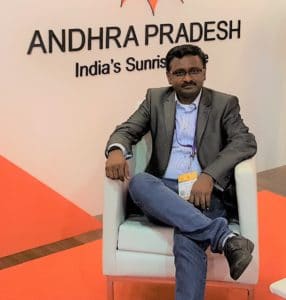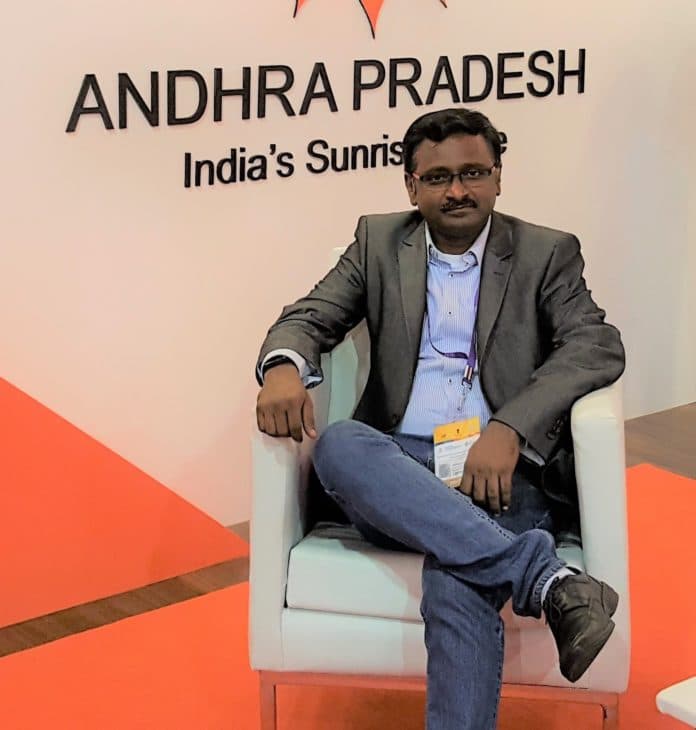Srinivas Gutti, Director, InfoRepos Technologies, opines that India can produce more successful entrepreneurs if high priority is given to locally manufactured products rather than importing from foreign markets.
Incorporated in 2016, InfoRepos Technologies is a Hyderabad-based IOT company serving smart industry and smart agriculture segment through its product designing, reengineering, training and consulting services. It manufactures devices for intelligent harvesting, intelligent warehouse (food sector), water quality, vital health care, intelligent mining and building automation products.
In an exclusive interview with EFY bureau, Srinivas Gutti shares his views on the current status of IoT adoption in India, upcoming business opportunities in this new market, his company’s business strategy and many more.

Here are the excerpts from the interview
Q. Many opine that IoT is just a buzzword that industry Gurus have coined to create hype? Do you agree with that line of thought? Or do you feel that IoT is opening an entirely new market?
No, Internet of Things (IoT) is not just a buzzword, it’s really a new market and with 4G & 5G networks it will expand further and change the business dimensions.
Q. In your opinion, is the Government of India (GoI) playing any significant role in expanding the IoT market right now? If yes–how?
Yes, various state and central governments have started reaping the benefits of IoT by implementing various projects in cities and villages to make them smarter. The smart city concept is a reality now.
Q.What are your expectations from the GoI in terms of the initiatives they should take to make India an IoT-super power?
GoI should promote India-based startups/corporates to develop and market IoT products glocally. In order to have more successful Indian entrepreneurs, high priority should be given to locally manufactured products rather than bringing from outside markets.
A fundamental shift is required in people to accept local products – BE MORE INDIAN. BUY MORE INDIAN.
Q.Are you satisfied at the rate of deployment of IoT solutions in India?
Till now, yes. For new technologies like LoRa, 5G, Mesh Networks, Edge Computing, our electronics and semiconductor industries are not ready to provide the supporting hardware required in IoT ecosystem. But India has a good chance to perform aggressively in the domain. Currently, many of the HW components are purchased from other countries.
But yes, we are seeing successful deployment of IoT in India in many domains.
Q.How do you see the IoT market evolving in the next 2-3 years?
It will be huge. IoT market is expected to reach $550 billion by 2022, with annual growth rate above 25 per cent.
Q.Which industry segments do you believe will be driving a larger chunk of demand? Why?
Necessity is the mother of invention. Here, primary natural resources are the necessity for humans to live and these will lead to more innovation in the coming years. So, water, agriculture, food storage, energy, health, and mining are the industry segments that will majorly drive the demand for IoT solutions.
Q.What’s your bigger challenge–acquiring customers or acquiring talent? What’s your strategy in resolving the same?
Talent is always a challenge for everyone and it’s bigger for a startup. Employee stock ownership plans (ESOP) alone couldn’t make the workers stay. So, we need an approach to match the ideas and thoughts of younger generation of workers.
I suggest giving them good salaries (provided you have funds) and keeping them as statutory working bodies to meet the organization goals. This is because a new generation employee usually comes with an ambition to start an organization of his/her own.
Q.What is the estimated revenue of your biz that you’d attribute to IoT-related business? What fraction of your overall business is the IoT-related business?
Our revenue now stands at 20-60 lacs per annum, and we are expecting to reach 11 million by 2022, and this is all from the IoT-related business only. Overall, we are into IoT manufacturing (especially in utilization of natural resources) and we want to keep this at 90 per cent of overall business.
Q.How do you see your IoT-related business growing in the next 2-3 years both in terms of revenue and as a fraction of your overall revenues?
Till now, we have spent a lot on research related to IoT in various domains, and we are seeing multi-fold business growth. We are further expecting a minimum of 20-fold growth in the next two years.
Q.What’s your strategy to create a differentiation for your solutions vis-a-vis your competitors?
We follow a unique and competitive strategy to create demand for our solutions amongst customers. It’s a corporate game. We will proof with results.
Q.Who is the key decision maker for you–the technology decision maker or the business decision maker? With whom do you start the conversation–and how do you balance the interests of both types of decision makers?
I value both decision makers. First technology, as they are the game changers in evaluating the need or we can call ‘Value Added Solution Enablers’, then comes the business decision maker
Q.What’s unique about your solution or your firm as compared to your competitors?
Our solutions are easy to understand and offer benefits with visible parameters.
Our solution has multi-farm integration and is human independent. It addresses daily need and ensures daily savings with less effort involved. All these features we offer make a farmer feel he is ‘simply smart’.










